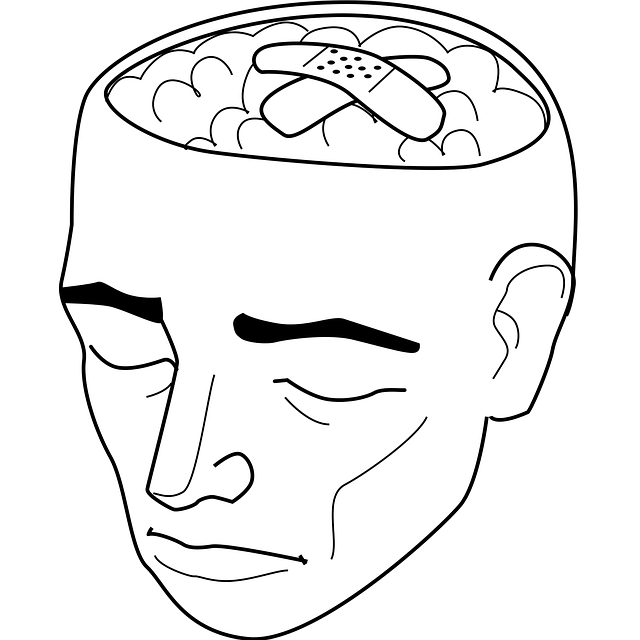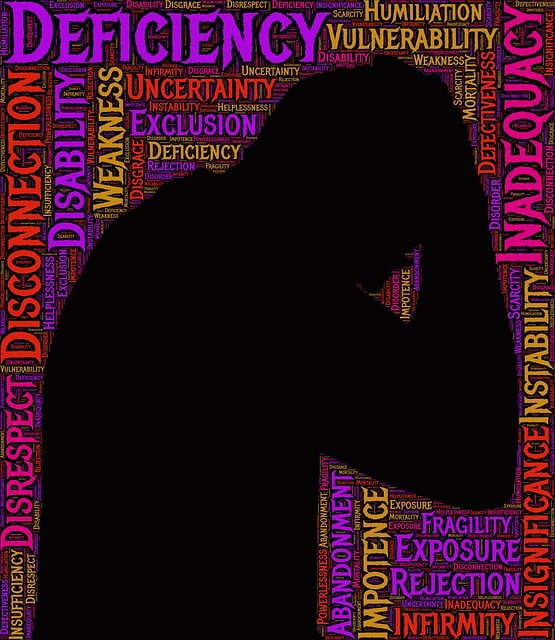Arvada's commitment to mental health advocacy centers around comprehensive evaluations and specialized therapy sessions that empower individuals. These evaluations, employing clinical interviews, psychological assessments, and cultural competency training, unlock tailored care paths emphasizing evidence-based practices and coping mechanisms. Community engagement through open dialogue, partnerships, and programs like Mental Wellness Journaling Exercises normalizes mental health conversations and fosters support. Continuous measurement and refinement of these initiatives ensure their effectiveness in improving well-being and access to quality mental health services in Arvada.
Mental health advocacy initiatives play a pivotal role in creating supportive communities. This article delves into various strategies aimed at improving mental well-being, focusing on key components like Arvada Mental Health Evaluations and the transformative power of therapy. We explore how education serves as a cornerstone for change, discuss effective community engagement strategies, and highlight the importance of measuring impact to shape future initiatives. By understanding these elements, we unlock access to care and empower individuals to lead healthier lives.
- Understanding Arvada Mental Health Evaluations: Unlocking Access to Care
- The Role of Therapy in Advocacy: Empowering Individuals
- Building Awareness: Education as a Cornerstone for Change
- Community Engagement Strategies for Mental Health Advocacy
- Measuring Impact: Evaluating Success and Shaping Future Initiatives
Understanding Arvada Mental Health Evaluations: Unlocking Access to Care

In Arvada, Mental Health Evaluations play a pivotal role in unlocking access to essential therapy services for individuals seeking support. These evaluations go beyond mere diagnosis; they are comprehensive tools designed to assess an individual’s mental well-being, identify potential issues, and guide them towards appropriate care paths. By facilitating these evaluations, healthcare providers can ensure that each patient receives tailored treatment plans, addressing specific needs like confidence-boosting strategies or burnout prevention techniques.
The process often involves a combination of clinical interviews, psychological assessments, and sometimes, medical examinations. This multi-faceted approach not only helps in diagnosing mental health conditions but also aids in developing effective interventions. Moreover, it promotes healthcare provider cultural competency training, ensuring that every patient, regardless of their background, receives respectful and knowledgeable care. Through these evaluations, Arvada aims to create a more inclusive and accessible environment for mental health services.
The Role of Therapy in Advocacy: Empowering Individuals

In the context of mental health advocacy, therapy plays a pivotal role in empowering individuals to take control of their well-being. Through Arvada Mental Health Evaluations and specialized therapy sessions, individuals gain valuable tools for navigating life’s challenges. These evaluations provide an initial assessment, allowing therapists to tailor treatments that address specific needs. By incorporating evidence-based practices and Mind Over Matter principles, therapy offers a safe space for self-reflection and growth. It equips clients with coping mechanisms to manage stress and overcome barriers, fostering resilience and self-advocacy.
Moreover, the process of therapy enhances cultural competency among healthcare providers. This is particularly relevant in diverse communities where unique perspectives and experiences may influence mental health journeys. Regular Stress Management Workshops and Healthcare Provider Cultural Competency Training sessions contribute to a more inclusive approach, ensuring that everyone receives culturally sensitive care. These initiatives collectively strengthen the advocacy effort by promoting understanding, acceptance, and effective support for mental health concerns within the community.
Building Awareness: Education as a Cornerstone for Change

Education is a powerful tool for advocating mental health initiatives in communities, including Arvada, where access to mental health evaluations and therapy services is essential. Raising awareness through educational programs can dispel myths and reduce stigma surrounding mental illness, encouraging individuals to seek help promptly. Schools, workplaces, and community centers can all play a vital role in delivering workshops, seminars, or interactive sessions that highlight the importance of mental wellness.
By integrating Mental Health Policy Analysis and Advocacy into educational curricula, students can gain insights into policy changes that promote access to care. Additionally, encouraging Mental Wellness Journaling Exercises can foster self-reflection and provide individuals with coping mechanisms. These initiatives, when combined with Confidence Boosting strategies, empower people to take charge of their mental health and seek professional support when needed, ultimately improving overall well-being in Arvada and similar communities.
Community Engagement Strategies for Mental Health Advocacy

Effective community engagement is a cornerstone of successful mental health advocacy initiatives. By fostering open dialogue and building partnerships with local organizations, schools, and businesses in Arvada, we can create a more supportive environment for individuals seeking mental health evaluations and therapy. This collaborative approach ensures that resources are tailored to meet the unique needs of the Arvada community. For instance, implementing Mental Wellness Journaling Exercise Guidance programs in public spaces and schools can normalize conversations about mental health while providing practical tools for coping.
Additionally, equipping community members with Conflict Resolution Techniques through workshops and training sessions equips them to support peers and de-escalate situations, fostering a culture of care and understanding. These strategies are complemented by Mental Health Policy Analysis and Advocacy efforts that push for systemic changes, ensuring access to quality mental health services in Arvada and beyond.
Measuring Impact: Evaluating Success and Shaping Future Initiatives

Measuring impact is a vital component of any successful mental health advocacy initiative. By evaluating the effectiveness of programs and therapies, such as Arvada Mental Health evaluations and therapy sessions, organizations can assess their ability to provide Anxiety Relief and improve overall well-being. This process involves tracking key performance indicators (KPIs), collecting participant feedback, and analyzing data to identify areas for improvement. Through these efforts, initiatives can ensure they are aligning with the evolving needs of the community and achieving their intended goals.
Shaping future initiatives based on impact assessments is crucial for continuous improvement. Using insights gained from evaluating programs, mental health professionals can refine existing practices, develop new strategies, and enhance service delivery models. For instance, successful Stress Management Workshops organized by these entities might lead to incorporating more interactive and engaging elements into their risk management planning for mental health professionals. This iterative process ensures that initiatives remain relevant, effective, and responsive to the unique challenges faced by individuals seeking mental health support in Arvada.
Mental health advocacy initiatives, such as those centered around Arvada Mental Health Evaluations, play a pivotal role in empowering individuals and communities. By combining therapy with accessible evaluations, these programs foster understanding and reduce stigma. Through education, community engagement, and rigorous evaluation, we can create a more inclusive and supportive environment for mental wellness. Integrating these strategies ensures that effective therapies like mental health assessments reach those who need them most, ultimately enhancing the overall well-being of our communities.












